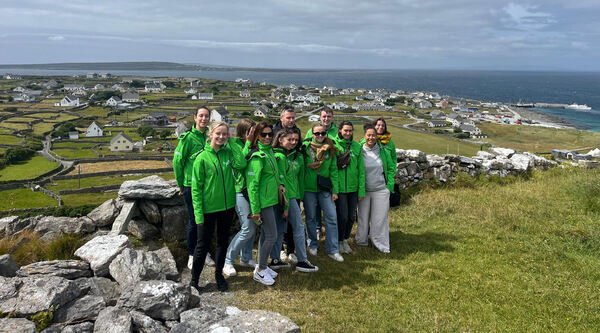Title: Establishing a Tourism Fund: Unlocking the Potential of Indonesia’s Tourism Industry
Introduction
Indonesia, with its stunning landscapes, diverse culture, and rich heritage, has emerged as a popular tourist destination in recent years. The archipelago nation is home to breathtaking beaches, ancient temples, vibrant markets, and dense rainforests, attracting millions of tourists annually. To harness the full potential of its tourism industry, it is crucial for Indonesia to establish a dedicated tourism fund. This article explores the benefits of such a fund and highlights the importance of sustainable tourism for the nation’s economic growth.
Unlocking Economic Potential
Indonesia’s tourism industry has immense economic potential, contributing significantly to the nation’s GDP and providing employment opportunities. According to the World Travel and Tourism Council (WTTC), tourism directly contributed 6.3% to Indonesia’s GDP in 2019, generating over 6 million jobs. By establishing a tourism fund, the nation can boost investments in infrastructure development, marketing campaigns, and training programs, leading to increased tourist arrivals and higher revenue.
Infrastructure Development
One of the primary areas that would benefit from a tourism fund is infrastructure development. To fully capitalize on its natural wonders, Indonesia needs to improve transportation networks, build better roads, upgrade airports, and enhance connectivity between islands. By investing in infrastructure, the government can facilitate easier access to remote destinations, encourage tourism in lesser-known areas, and ultimately attract a broader range of visitors.
Marketing and Promotion
Effective marketing and promotion are fundamental to attracting tourists to any destination. A dedicated tourism fund would enable Indonesia to implement robust marketing strategies, both domestically and internationally. This could include targeted campaigns, participation in global travel exhibitions, and collaborations with airlines and travel agencies. Increased visibility and marketing efforts would highlight Indonesia’s unique offerings, encouraging more tourists to explore the country’s diverse landscapes and cultural heritage.
Training and Skill Development
Ensuring that the local population benefits from the growth of the tourism industry is crucial. A tourism fund could be utilized to provide training programs and skill development initiatives for local communities, equipping them with the necessary tools to participate actively in the sector. By investing in education and vocational training, Indonesia can enhance the quality of services provided to tourists, leading to improved visitor experiences and increased tourism revenue.
Sustainable Tourism Practices
Establishing a tourism fund would also allow Indonesia to focus on sustainable tourism practices. The country is blessed with a remarkable natural environment, including pristine beaches, tropical rainforests, and unique wildlife. By emphasizing sustainable tourism, the nation can protect its natural resources, minimize negative environmental impacts, and preserve its cultural heritage for future generations. The tourism fund could be used to implement eco-friendly initiatives, support conservation projects, and promote responsible tourism practices among visitors and local communities.
Conclusion
Indonesia’s tourism industry has the potential to become a significant driver of economic growth and employment opportunities. By establishing a dedicated tourism fund, the government can unlock this potential and invest in crucial areas such as infrastructure development, marketing, training, and sustainability. With careful planning and strategic utilization of funds, Indonesia can position itself as a leading global tourist destination, attracting visitors from all corners of the world while preserving its natural and cultural treasures for generations to come.





